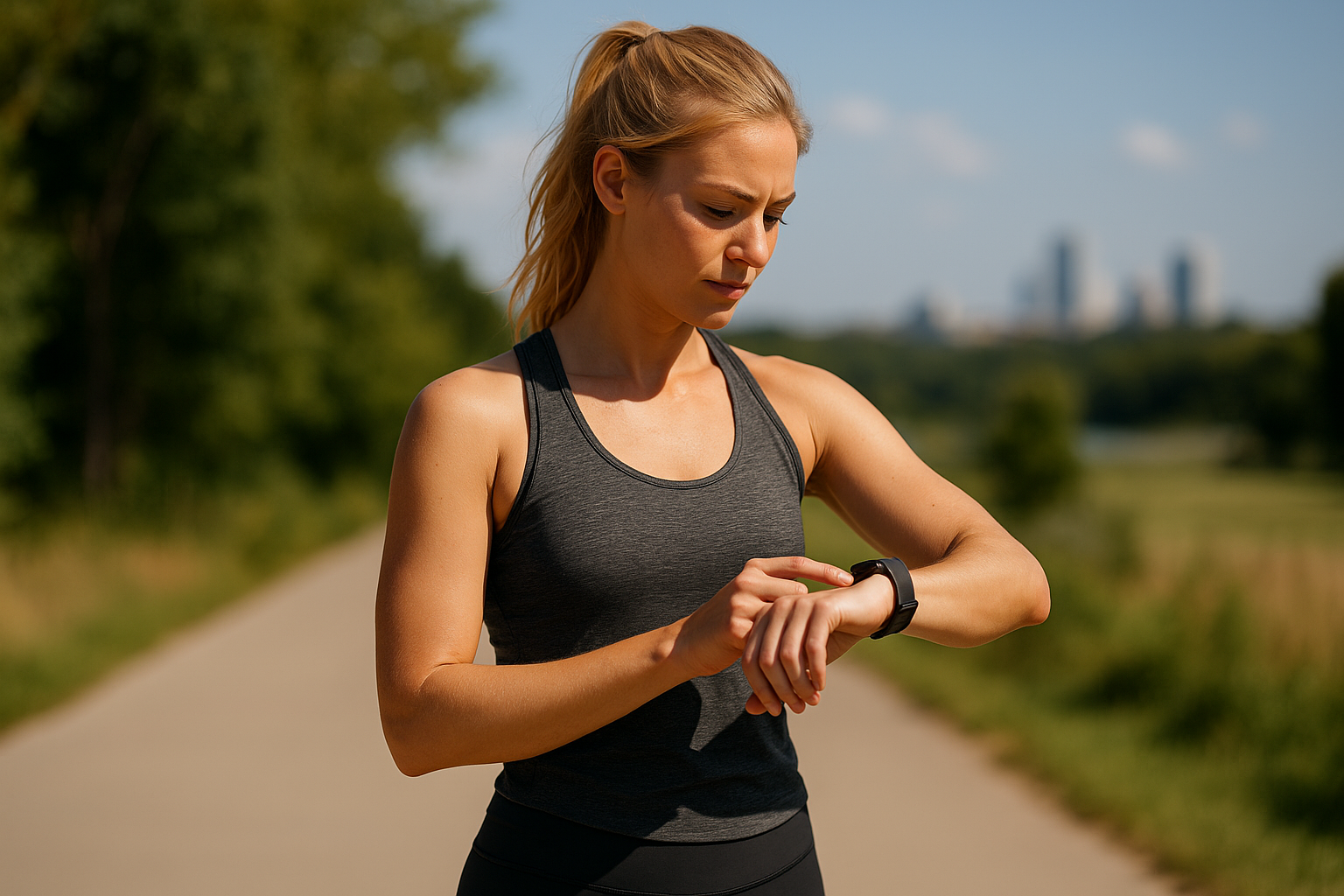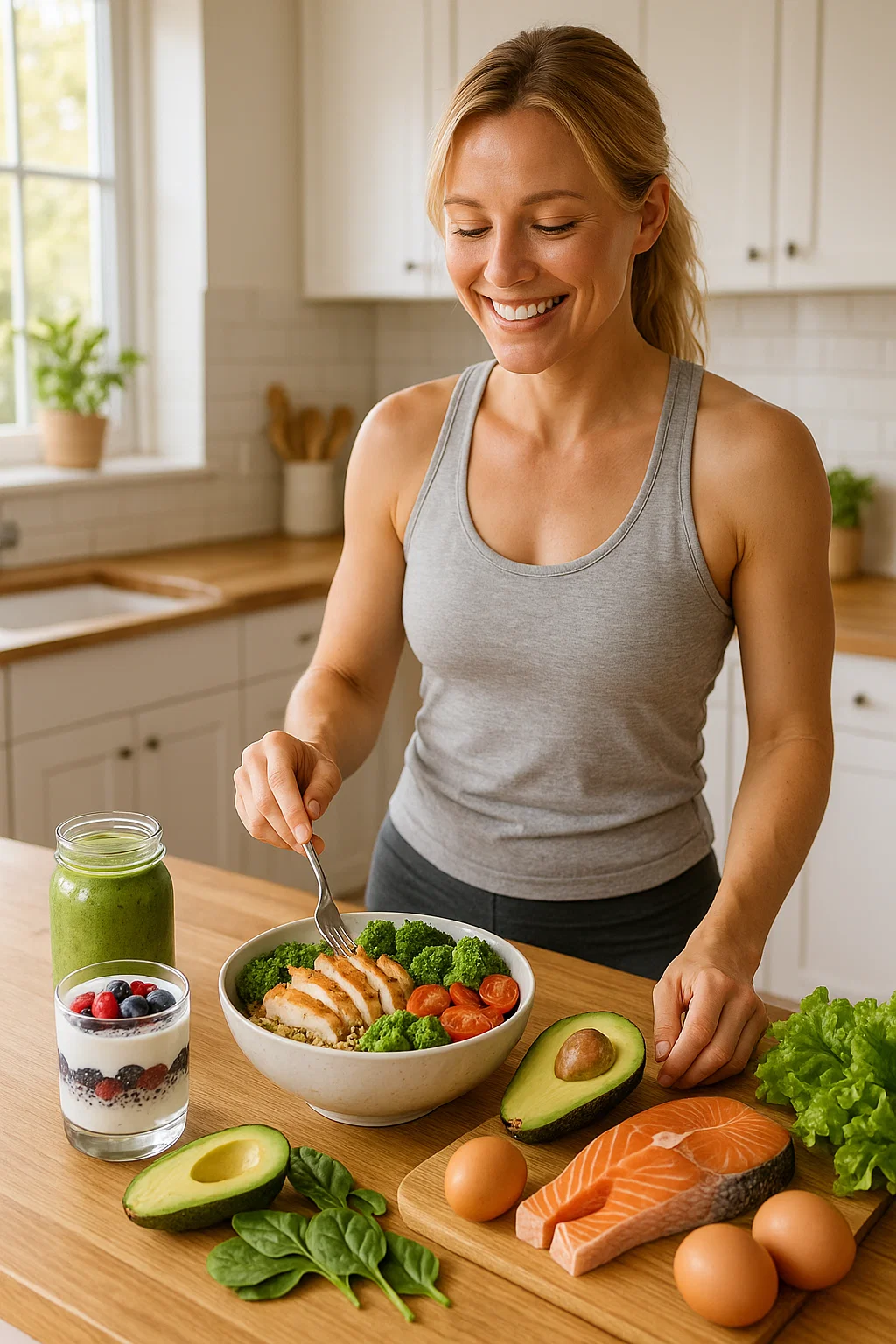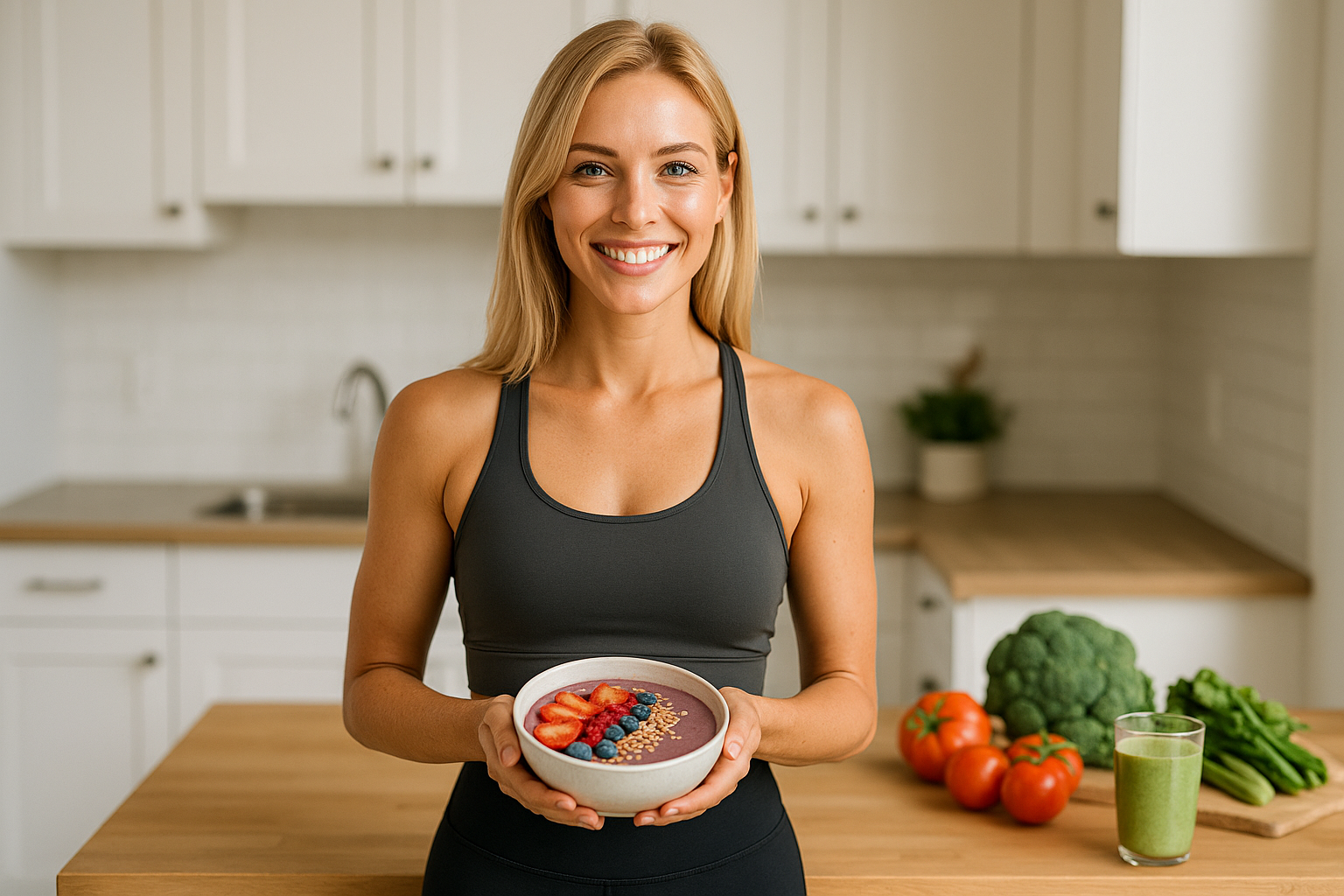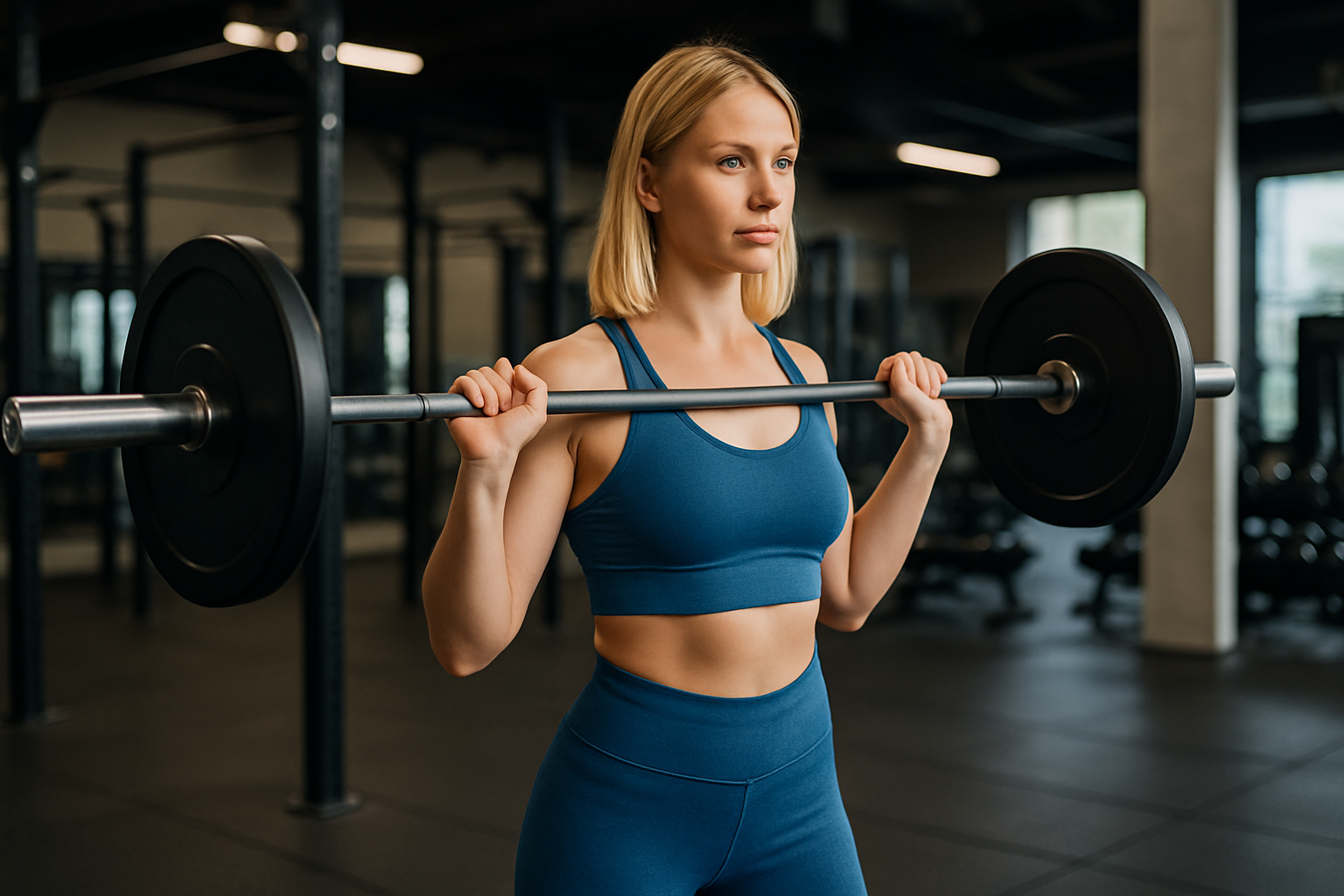You’ve just wrapped up your workout. You’re sweaty, proud—and probably thinking about that scale.
Now is when your body needs fuel the most.Skipping post-workout nutrition can hinder your weight loss progress.
Why You Should Eat After Training
- Rebuilds and repairs muscle fibers
- Refills glycogen stores, preventing fatigue later
- Keeps metabolism running strong
- Prevents overeating at your next meal
Post-Workout Meal Ideas (Within 30–60 Minutes)
| Recipe Name | Ingredients | Why It Works |
| Grilled Chicken Bowl | Chicken, quinoa, spinach, olive oil | Protein + healthy carbs + nutrients |
| Recovery Smoothie | Protein powder, almond milk, berries | Quick and effective post-gym fuel |
| Tuna Salad Wrap | Tuna, whole grain wrap, lettuce, hummus | High protein, fiber-rich, portable |
| Scrambled Eggs Plate | Eggs, avocado, sweet potato or toast | Balanced fat, carbs, and muscle repair |
A good rule? Your post-workout meal should include protein (to rebuild muscle), carbs (to refuel energy), and a little fat (to support recovery).
Table of Contents
⚖️ Eat Before or After Workout? It Depends on You
There’s no universal answer, and that’s the truth most articles don’t tell you. Whether you should eat before or after depends on your routine, goals, and how your body responds.
Here’s a quick breakdown:
- Light Cardio (30 mins or less): You can go fasted—just hydrate.
- High-Intensity or Strength Training: Eat a light pre-workout snack and a solid post-workout meal.
- Morning Workouts: Small snack before, breakfast after.
- Evening Workouts: Balanced dinner after training.
Your Workout Nutrition Strategy Might Look Like This:
| Time | Meal | Notes |
| 6:30 AM | Half banana + water | Light snack for energy |
| 7:00 AM | Workout | Cardio or strength |
| 8:00 AM | Breakfast (eggs + toast + berries) | Refuel & recover |
| 1:00 PM | Lunch (lean protein + salad) | Stay full and nourished |
| 4:00 PM | Snack (Greek yogurt or almonds) | Keeps blood sugar steady |
| 7:00 PM | Dinner (grilled salmon + veggies) | Final recovery + muscle support |
❌ Common Myths You Need to Stop Believing
“If I skip food, I’ll burn more fat.”
Not exactly. You might burn a bit more fat during the session, but if your performance tanks, you’ll burn fewer calories overall.
“Eating after workout makes me gain weight.”
Nope. Your body is primed for nutrient absorption after a workout—this is when calories are most likely to be used for recovery, not fat storage.
“Carbs kill fat loss.”
Not true. Complex carbs are fuel. Avoiding these can trigger cravings, reduce energy levels, and slow down your fat-burning efforts.
🗓️ Sample 1-Day Meal Plan Around Your Workout
Here’s a simple daily template to help you get started:
| Meal | What to Eat |
| Pre-Workout | Banana + spoon of almond butter |
| Breakfast | Scrambled eggs, avocado toast, blueberries |
| Lunch | Grilled chicken salad + olive oil dressing |
| Snack | Handful of almonds or low-fat Greek yogurt |
| Dinner | Baked salmon, roasted sweet potatoes, steamed broccoli |
❓ Frequently Asked Questions: Should I Eat Before or After Workout to Lose Weight?
Q1:Does exercising before eating boost fat burning and speed up weight loss?
Fasted cardio can increase fat usage short term, but doesn’t guarantee more fat loss overall. If your performance suffers, it may not be worth it.
Q2: What’s a good pre-workout snack for weight loss?
Enjoy a quick, nutritious snack that combines protein and carbs, such as a serving of yogurt with almonds or fresh fruit with nut butter.
Q3: What if I’m not hungry after my workout?
Even a small protein shake or smoothie will help you recover better than skipping food altogether.
Q4: Can I eat at night after working out?
Yes. Your body needs recovery fuel. Just keep your portion in line with your daily calorie goal.
Q5:Can fueling up before and after workouts improve performance and recovery?
Absolutely, especially if your session is longer than 45 minutes or includes strength training. Just adjust your portion sizes accordingly.
✅ Key Takeaways
- You don’t need to choose either before or after. Many people benefit from both.
- Fuel before for energy, and after for recovery.
- Listen to your body — it tells you when it’s low on fuel or needs replenishment.
- Focus on whole foods: protein, complex carbs, and healthy fats.
- Consistency always beats perfection.
🚀 Call to Action: Your Body Deserves the Right Fuel
You’ve taken the time to learn what works—and now it’s time to apply it.
Instead of stressing over whether to eat before or after your workouts, start focusing on how your body feels and performs with different approaches. Keep a journal. Track your energy. Make small tweaks and see how you respond.
Don’t fall for quick-fix fads or punishing routines. Sustainable weight loss comes from fueling smart, moving consistently, and resting intentionally.➡️ Ready to take control of your fitness journey?
Start by planning your meals for the week using this guide. Your body—and your goals—will thank you.







